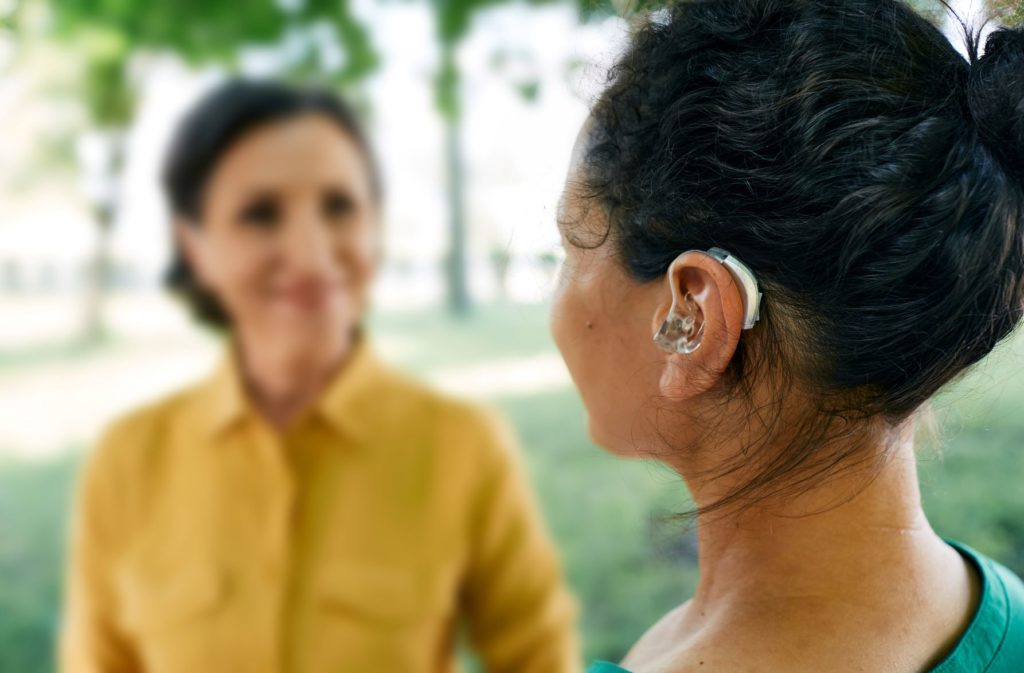Hearing loss isn’t always preventable, but there are precautions and healthy lifestyle habits you can adopt to aid in preventing or worsening hearing loss.
Whilst it’s common knowledge that ageing and prolonged exposure to loud sounds can lead to hearing loss in many cases, however, factors such as excessive, compacted earwax can temporarily reduce your hearing capacity.
Although permanent hearing loss isn’t reversible, there are measures you can take to maintain your hearing capability and reduce ear damage.
Different types of hearing loss
Hearing loss is defined in 3 ways; sensorineural which involves the inner ear, conductive which involved the outer or middle ear and mixed which is a combination of both. These different types of hearing loss are typically caused by different factors, such as:
- Sensorineural hearing loss can mean there is a problem with the auditory nerve which delivers sounds to the brain.
- Conductive hearing loss is often related to obstruction or trauma of the outer or middle ear.
- Mixed hearing loss means the hearing loss is being caused by a combination of the two hearing types.
Sensorineural is permanent and caused not only by nerve damage inside the inner ear but can also occur when there’s damage to the stereocilia. Stereocilia are the tiny, delicate hair-like cells within the inner ear that are required for both hearing and balance.
It is possible to be born with sensorineural hearing loss. This can be caused by genetic syndromes or infection passed from the mother to the fetus.
It’s common for those experiencing sensorineural hearing loss to also experience tinnitus.
Depending on the reason for conductive hearing loss, this form of hearing loss can be permanent or temporary. Typically, conductive hearing loss caused by anatomical changes or deformities is permanent, whereas conductive hearing loss caused by trauma or blockages is temporary.

Common causes of hearing loss
As mentioned above, hearing loss can be caused by genetic defects, problems that occurred during fetal development, ageing and overexposure to loud noises however, these aren’t the only causes of hearing loss.
There are both common and uncommon causes for sensorineural and conductive hearing loss.
Causes for sensorineural hearing loss
- Ageing
- Exposure to loud noises
- Virus and infection
- Medication side effects
- Auditory tumours and growths within the ear
- Concussions and brain trauma
- Autoimmune disease
Causes for conductive hearing loss
Causes for conductive hearing loss differ depending on the part of the ear that is affected.
Outer ear:
- Compacted earwax
- Narrowing of the ear (stenosis)
- Swimmers ear
- Obstruction caused foreign objects
Middle ear:
- Injury to the tympanic membrane
- Thickening of the tympanic membrane (tympanosclerosis)
- Ear infection or build-up of fluid in the ear
- Growths such as cholesteatoma or glomus tumours
Can hearing loss be prevented?
While not all hearing loss is preventable, there are ways you can protect your ears and reduce your risk of hearing loss.
Reduce exposure to loud noises
Prolonged exposure to loud sounds can lead to hearing loss, and in some instances, loud sudden noises can cause hearing loss, too. Sound is measured in decibels (dB) and sounds over 70 dB over an extended period of time may cause ear damage, whereas noise above 120 dB can cause immediate hearing damage.
Different noises and their dB measurement
- Whisper – 30 dB
- Normal conversation – 60 dB
- Washing machine – 70 dB
- City traffic inside the car – 85 dB
- Motorcycle – 95 dB
- Maximum volume of personal listening devices – 110 dB
- Firecrackers – 150 dB
Sound exposure is easily forgotten about however, it’s important to be mindful of prolonged exposure to loud noises and protect your ears accordingly. Using good quality ear defenders or foam earplugs are readily available and do a great job at protecting your ears and hearing from damage and hearing loss.
Managing diabetes and blood sugar levels
Studies show that those with diabetes are twice as likely to experience hearing loss. This is because over time high blood sugar levels can cause damage to the delicate blood vessels and nerves within the inner ear. Low blood sugar levels can also cause lasting damage to the nerves and interfere with how the nerves signal from the inner ear to the brain. Even people with prediabetes can experience ear damage from unmanaged blood sugar levels.
Keeping your blood sugar levels stable and as close to your target levels as possible helps prevent your hearing levels from worsening. For concerns related to diabetes and blood sugar levels, Hearing Therapy recommends you visit your GP.

Balanced diet and exercise
Your diet and levels of activity will greatly help prevent hearing loss, no matter what age you start! Exercise improves blood flow throughout the body, including your ears, and also reduces stress levels which is also a factor of hearing loss.
Ensuring you’re eating a healthy, balanced diet will provide your body with the nutrients and minerals your body needs to recover and thrive. Vitamin B12 is vital for good hearing, as is potassium, magnesium and iron.
Quit smoking and limit alcohol consumption
Research has shown that smoking cigarettes and cigarette smoke, be it secondhand smoke or during fetal development, can impact hearing health dramatically. Although vaping hasn’t had the same research as smoking, due to the chemicals used in vaping liquid, we recommend people avoid or limit vaping, too. Alcoholism and heavy alcohol consumption can also lead to reduced hearing and loss over time due to the effects on the body such as blood pressure changes and sugar level changes.
Get a hearing test
Hearing Therapy offer home visits and appointments in our clinic in South Yorkshire. We offer domiciliary appointments across Barnsley and our clinic is located in Sheffield. Get in touch to book an appointment, or if you’re unsure if you need one, try our free online hearing screening service.
